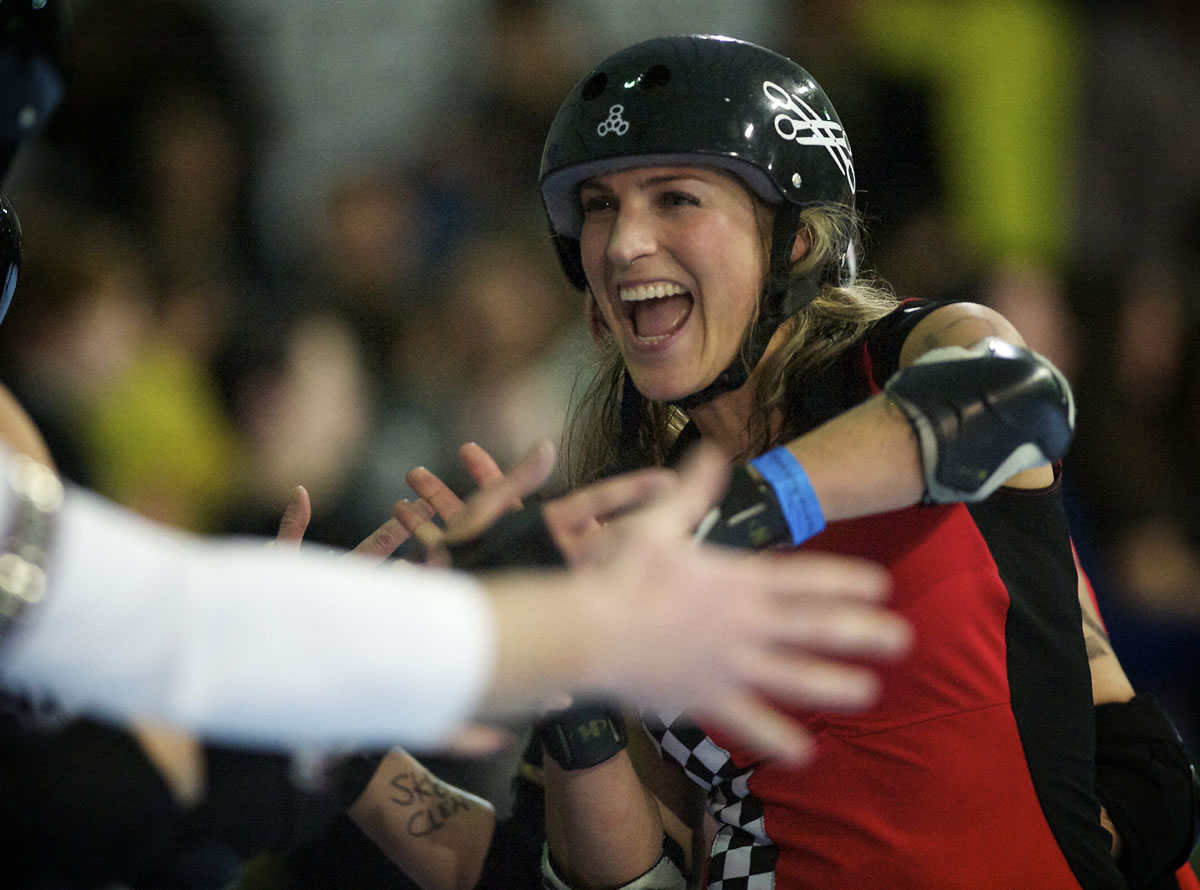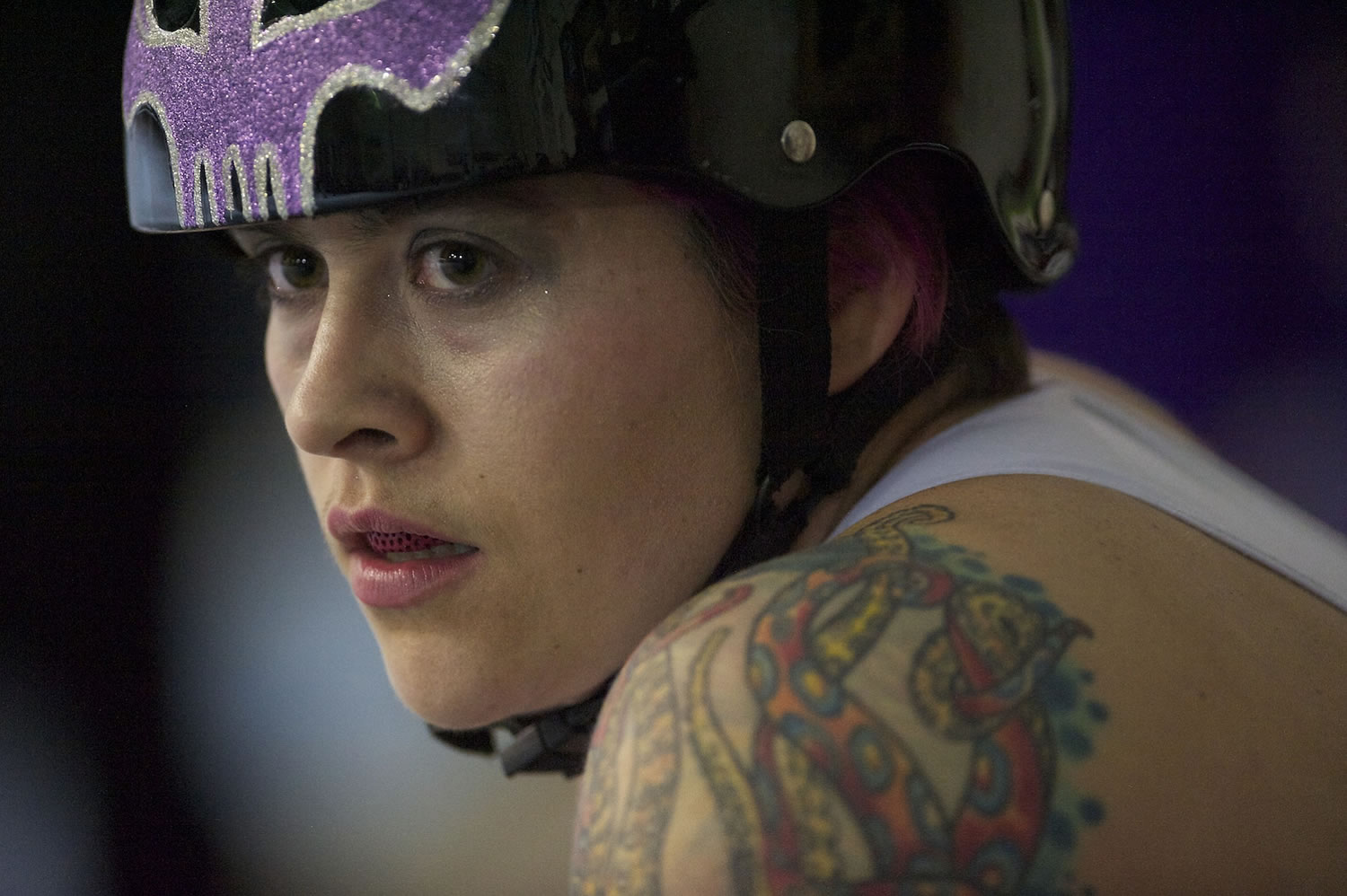Name: Carlee Wolcott
Roller derby name: Scylla Devourer
Age: 31
Residence: Vancouver
Occupation: Student at Pacific Northwest College of Art; hat maker
Derby team: Wheels of Justice
Time in league: 31/2 years
Name: Jessica Chestnut
Roller derby name: Chestnutz
Age: 33
Residence: Vancouver
Occupation: Mortgage loan officer
Derby team: Break Neck Betties
Time in league: 5 years
Name: Kiki Bittner
Roller derby name: Devilla Jukes
Age: 40
Residence: Vancouver
Occupation: Co-owner of Deane’s Graphics & Advertising
Derby team: Break Neck Betties
Time in league: 11/2 years
Name: Wendy Woodhouse
Roller derby name: No name yet
Age: 38
Residence: Vancouver
Occupation: Property management
Derby team: Wreckers program
Time in league: Six months
A roller derby game is called a “bout.” A bout is divided into two 30-minute periods. Each period is made up of a dozen or more plays, called “jams.”
Modern derby uses flat tracks as opposed to banked tracks.
Roller derby has three positions: jammer, blocker and pivot. Each team plays one jammer (star on helmet), one pivot (stripe on helmet) and three blockers.
Jammers score points. They must fight through the pack, scoring a point for every opposing skater they pass.
Blockers make up the “pack.” They play offense and defense at the same time as they tie up the opposing jammer while helping their own jammer through the pack.





